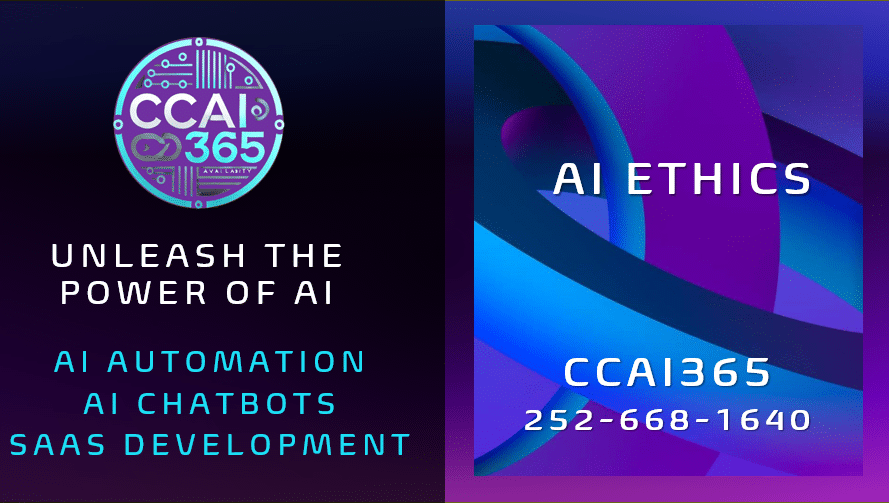Introduction to AI Ethics
Artificial Intelligence (AI) is no longer a futuristic concept reserved for tech companies or researchers—it has become a fundamental tool driving modern business strategies. From customer service chatbots and automated decision-making systems to personalized marketing and advanced data analytics, AI is reshaping the way businesses operate. However, with great power comes great responsibility. As businesses rely more heavily on AI, one factor has emerged as absolutely critical: AI ethics.
AI ethics is more than just a buzzword—it’s a guiding principle that ensures AI technologies are developed, implemented, and managed in a way that is transparent, fair, and aligned with human values. For business owners, it’s not just about compliance or risk management; it’s about building customer trust, safeguarding brand reputation, and ensuring long-term success. Customers today are increasingly aware of how their data is collected, how algorithms influence decisions, and how automation impacts their lives. If businesses ignore AI ethics, they risk alienating their customers, facing regulatory backlash, and damaging their credibility.
This article explores how AI ethics directly connects to customer trust and long-term business growth. From its importance in everyday decision-making to its role in data privacy, automation, and competitive advantage, you’ll see why ethical AI is not just an option—it’s a necessity.
Why AI Ethics Matters for Every Business Owner Today
In today’s hyper-connected, data-driven world, businesses of all sizes—from small startups to multinational corporations—are harnessing the power of AI to gain an edge. But with increased adoption comes increased scrutiny. Customers, investors, and regulators alike are asking a fundamental question: Is your use of AI ethical?
At its core, AI ethics revolves around fairness, accountability, transparency, and respect for human rights. Business owners who fail to prioritize these values risk serious consequences, from reputational damage to financial loss. Consider, for example, AI systems that unintentionally discriminate against certain demographics in hiring or lending decisions. While the intention may not be malicious, the impact can be devastating, both legally and socially.
For today’s business owner, AI ethics isn’t just about avoiding scandals—it’s about proactively building a reputation as a trustworthy and responsible brand. Consumers want to know that the companies they support share their values. According to numerous surveys, trust has become one of the top drivers of customer loyalty, often outweighing even price or product quality. And in the age of AI, this trust is directly tied to how ethically a company uses its technology.
Moreover, governments and regulatory bodies are paying closer attention to how AI systems are designed and deployed. Countries in the European Union have already introduced legislation aimed at regulating high-risk AI systems, and the United States is following suit with increasing oversight. Business owners who embrace AI ethics now position themselves ahead of regulatory changes, reducing compliance costs and avoiding potential penalties in the future.
In short, AI ethics matters today because it provides a roadmap for responsible innovation. It helps businesses align technological advancements with human values, ensuring that growth is not only profitable but also sustainable and respected by customers.
Linking AI Ethics to Customer Trust and Brand Reputation
One of the most powerful ways AI ethics impacts a business is through customer trust. Trust is the foundation of every strong customer relationship, and without it, even the most innovative AI solutions will fail to gain traction.
Imagine a company that uses AI-driven recommendation systems to personalize shopping experiences. If customers feel that their personal data is being misused, manipulated, or sold without consent, trust is shattered instantly. On the other hand, if the company demonstrates that it uses data responsibly, applies AI ethics to prevent bias, and maintains full transparency, customers are more likely to stay loyal.
Brand reputation works in much the same way. Ethical lapses in AI usage spread quickly across news outlets and social media platforms. Just one scandal involving algorithmic bias or data misuse can undo years of positive brand building. Conversely, businesses that highlight their commitment to AI ethics often enjoy positive press, stronger customer relationships, and differentiation in crowded markets.
Furthermore, AI ethics directly connects to inclusivity and fairness, which are increasingly important to socially conscious consumers. Customers want to support businesses that reflect their values, and brands that showcase ethical AI practices are often viewed as leaders rather than followers. This alignment not only builds trust but also transforms customers into advocates who willingly promote your brand.
In essence, linking AI ethics to customer trust isn’t just a marketing tactic—it’s a long-term strategy for sustainable brand reputation. Businesses that make ethics a cornerstone of their AI journey position themselves as credible, transparent, and forward-thinking in the eyes of their customers.
The Role of AI Ethics in Data Privacy and Protection
Data is the lifeblood of AI systems. Every algorithm, predictive model, or machine learning application relies on vast amounts of information to function effectively. But this reliance also raises critical concerns around data privacy, one of the most hotly debated areas of AI ethics.
For customers, personal data is deeply tied to trust. They expect businesses to protect their information, respect their privacy, and use their data responsibly. Unfortunately, data breaches and misuse of personal information have become all too common, eroding public trust and prompting stricter regulations like the GDPR in Europe and the CCPA in California.
Here’s where AI ethics comes into play. Ethical AI systems are designed with privacy and protection in mind, incorporating practices such as:
-
Data minimization: Only collecting the information necessary for a specific purpose.
-
Transparency: Clearly explaining how data will be used and securing customer consent.
-
Security: Ensuring robust safeguards against unauthorized access or breaches.
-
Accountability: Providing avenues for customers to contest automated decisions that affect them.
When businesses adopt these principles, they send a powerful message: We respect and protect your data. This reassurance builds confidence, encouraging customers to engage more fully with your brand and share information that enables better personalization and service.
Ultimately, strong data practices rooted in AI ethics not only protect businesses from regulatory penalties but also establish them as trusted stewards of customer information—a competitive advantage in today’s digital landscape.
Driving Business Growth with AI Ethics and Responsible Automation
Automation is one of AI’s greatest promises, streamlining operations, reducing costs, and improving efficiency. From automated chatbots in customer service to intelligent inventory management systems, automation allows businesses to scale like never before. But without AI ethics, automation can also create unintended harm, from job displacement to biased decision-making.
Responsible automation, guided by AI ethics, balances the benefits of efficiency with the responsibility to stakeholders—employees, customers, and society at large. For example, companies can use automation to augment human capabilities rather than replace them outright. This not only improves productivity but also fosters goodwill among employees and customers who value businesses that prioritize people as much as profits.
Moreover, businesses that deploy ethical automation gain a unique growth advantage. Customers prefer engaging with companies that are transparent about how automation is used and that commit to fairness in automated decision-making. Ethical automation builds trust, increases adoption, and drives higher customer satisfaction—all of which contribute to business growth.
By embedding AI ethics into automation strategies, businesses unlock the full potential of AI while minimizing risks. They demonstrate that growth and responsibility can go hand in hand, creating a brand identity that resonates with both customers and employees.
Turning AI Ethics into a Strategic Asset for Long-Term Success
The final piece of the puzzle is recognizing AI ethics not as a compliance checkbox, but as a powerful strategic asset. Businesses that embrace ethics in AI design and deployment don’t just avoid risks—they actively create long-term value.
AI ethics enhances innovation by encouraging businesses to think holistically about their products and services. When ethical considerations are built into AI systems from the ground up, companies can develop solutions that appeal to a wider audience, address more customer concerns, and generate greater trust. This proactive approach also positions businesses as leaders in their industry, setting standards that others are forced to follow.
Additionally, treating AI ethics as a strategic priority creates resilience. As regulations evolve and customer expectations shift, ethical businesses are already ahead of the curve, able to adapt quickly without overhauling their practices. This foresight protects long-term profitability and reduces costly disruptions.
For business owners, the message is clear: AI ethics is not just about doing the right thing—it’s about doing the smart thing. Ethical practices strengthen customer relationships, reduce risk, and set the stage for lasting success in a competitive digital marketplace.
Conclusion
AI is changing the business landscape at lightning speed, but with this transformation comes responsibility. Companies that embrace AI ethics gain a critical advantage: trust. Trust fosters loyalty, strengthens brand reputation, protects data, powers responsible automation, and ensures resilience in the face of change.
In an era where customers demand transparency, accountability, and fairness, businesses cannot afford to ignore AI ethics. It’s the hidden key to unlocking long-term success and standing out in a crowded market.
Contact CCAi365 today at 252-668-1640 to learn more about AI Automations, Chatbots, and SaaS Development and the role AI Ethics plays in your business.
Related Topics:


